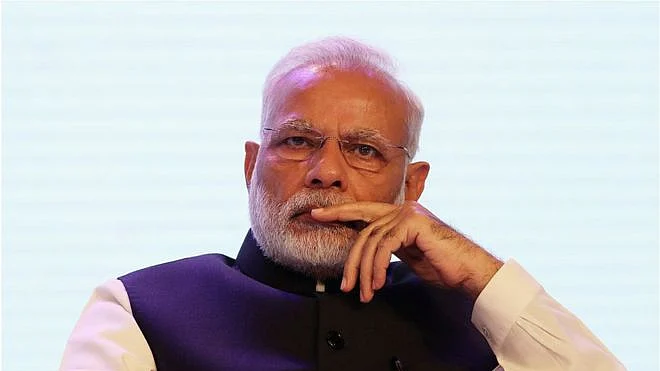With few jobs in sight, Modi’s gamble with quota may well boomerang on him
The 10% quota being promised to the poor could well turn out to be a poor joke if it fails to work. With few jobs around and a clueless government, this could actually backfire

In gatherings of India’s super rich at exotic theme weddings or at Davos, Indian billionaires and political leaders are often overheard explaining to millionaires how the middle classes and even rural India are becoming increasingly ‘smart’ and embracing a cashless economy. Yet, when it comes to winning elections, clumsy innovations in ‘job and college admission’ reservations remain the magic formula for political parties.
In 2014 the Modi government rode to power with a potent cocktail of caste arithmetic and grandiose promises of jobs and Rs 15 lakhs for each Indian. Even in December, 2017 the Prime Minister was still harping on ‘Vikas’ and a bright future for Indians. It is, therefore, somewhat pathetic to find him falling back on ‘Reservation’, a sop which his own party had described as ‘regressive’ and resisted.
The last four years and eight months also demonstrated, through agitations by Jats in the North, Patidars in the West and Marathas south of the Vindhyas, all of whom clamoured for being recognised as backward so that they could avail of ‘Reservation’ meant for the ‘Other Backward Classes’, was that caste-based reservations had reached a saturation point.
The Supreme Court was against exceeding the 50% limit. So, the only path open was to announce a fresh quota for ‘all others’ and rush to the Parliament for a suitable amendment to the Constitution. It may yield no immediate benefits to the actual targeted groups but would win brownie points for the Modi government.
Indian democracy needs a balancing of priorities and this demands an ecological perspective – a sense of the whole, along with a greater sensitivity to how things are inter-related.
So on literally the last day of the Parliament’s winter session and without any prior notice, and with no consultation with the opposition, with secrecy and some deceit, the usual bullying tactics were used to present a Bill approved by the Cabinet that asked for the Constitution to be amended to grant the poor 10% reservation in jobs and colleges in both the state and the private sectors.
The Opposition, as the Modi Government had anticipated, were caught between a rock and a hard place. Even though a shortfall of 11.9 million jobs in last year alone has been reported, and poorly funded government colleges are bursting at the seams, to be seen denying reservation to the ‘poor’ would have been poor politics and poorer optics and would have cost the opposition dearly in an election year. So, after some token resistance, the Opposition got into the damage control mode and allowed the Bill to be swiftly cleared by the Lok Sabha.
Democracy, capitalism and market forces of course do not always flow in the same direction from Patna to Patiala. Globalisation increasingly left government-owned PSUs in the lurch as the Centre and the states vied for foreign investment, international tie-ups and automation. Number of jobs went down, environmental degradation followed and inequality increased. The rich became richer and the poor even poorer.
That’s why the definition of the poor and ‘weaker section’ has changed. While a majority of Indians live on less than ₹32 per day, the Modi Government has set an income ceiling of ₹66,000 per month or ₹8 lakhs per annum for Indians to claim reservation in jobs and college admissions.
The NDA government had been powered by the marketing skills of snake oil salesmen who thrived on their ability to sell aphrodisiacs. But four and a half years later, it realises its failure to address economic ills and ensure stability.
Not surprisingly, therefore, it has fallen back on the optics of ‘reservation’ to bail it out in the immediate future.
Indian democracy needs a balancing of priorities and this demands an ecological perspective – a sense of the whole, along with a greater sensitivity to how things are inter-related. The willingness, in short, to say that there can be too much of a good thing like Reservations and singing of Vande Mataram.
Follow us on: Facebook, Twitter, Google News, Instagram
Join our official telegram channel (@nationalherald) and stay updated with the latest headlines
